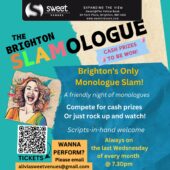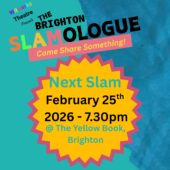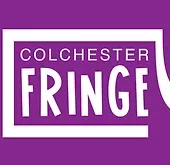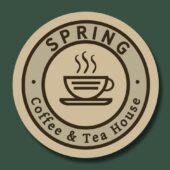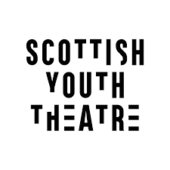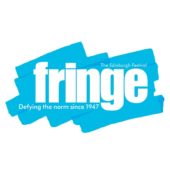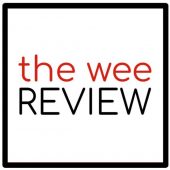FringeReview Scotland 2025
Common Tongue
Fraser Scott
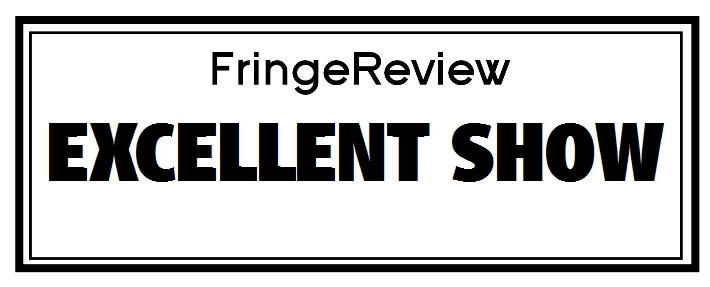
Genre: New Writing, Solo Performance, Theatre
Venue: Festival Theatre Studio
Festival: FringeReview Scotland
Low Down
A play aboot imperfect Scots, ‘Common Tongue’ highlights not only the richness of
Scots, but the very real social, political, and personal tensions that language can
expose. This is a play for anyone who has ever been told they speak “wrong” or have
tried to find the right words.
Review
Dressing goon or hoose-coat? Do you cry or greet? Can you understand Robert Burns? Have you ever been told to remove “outwith” from an essay? How has your accent changed (and did you notice it changing)? How do you feel about the c-word?
Common Tongue is a play about speech, and the space that our given language can create and take away. This 75-minute monologue written and directed by Fraser Scott features Bonnie, who wants “to get it right” because, when they hear her “I know people will think I’m wrang”. She takes us through life via her relationship with the Scots language: from her Paisley school set between a suburb and a scheme, to university, to leaving Scotland, and coming back. Her stories are warm, funny, and deeply relatable to this Edinburgh audience on a stormy October Friday. Bonnie tells a story about going on holiday to Millport (definitely not to Disneyland) as a child and this reviewer hears someone whisper “oh, Millport’s where I went too”.
There are many moments of this mutual and geography-specific recognition. So many Scots feel a complex and subtle discomfort around how they speak, however that is – east or west, posh or broad. Common Tongue also utilises the universality of language (and the variety in how we use it) to cast a wide net. Communication as a theme creates a lovely breadth to widely applicable ideas of alienation and belonging whilst allowing Scott’s play to tell Bonnie’s individual story: her use of west-coast modern day Scots, alongside her Papa (who knows Tam O’Shanter by heart and is far from home when he sets foot in a theatre). The multi-tartan set design points many microphones at many angles around the boxes that make up the stage. Bonnie tells us she loves words and she loves listening. Actor Olivia Caw will be lit up in one corner speaking as her “posh” teenage boyfriend’s parents in a home where the surfaces are “fuckin’… reflective?”, or drawling an American accent languidly from the floor during Bonnie’s year abroad where she looks at home and how she is understood from an entirely different place.
Caw is bouncy with energy and commanding throughout, she has a charisma and ease that make light work of moments of audience participation, it is fun to be a part of Bonnie’s world. She moves skillfully from dialogue to observation, plain language to poetry. The observations themselves can sometimes feel well-worn (we all know about Glasgow versus Edinburgh, or being asked to say “haggis”) but the energy and variation in script and direction keeps it all moving.
State-of-the-nation themes and ideas of belonging emerge. Auld Lang Syne may be sung around the world but using those same sounds in your everyday speech still somehow makes you “thick”. What about the odd alienation of speaking like a Burns poem but not understanding it? Bonnie’s confident and straightforward style belies a sensitivity around this, she’ll make a statement and then return, reflective, for another look. There’s a lot of ground to cover here and inevitably some fairly chunky themes like Scottish cultural cringe, the disconnect of studying at university when your parents did not, how “making fun” of an accent might or might not vary depending on that accent’s origin, are sometimes left broad-brush, or as unanswered questions along the way.
Two sections of the play cascade into fantastical elements and non-naturalistic speech. They are effective, playful, and engaging – this reviewer wonders how much further Scott could push towards this territory from the start. Likewise, Bonnie’s love of etymology is a lovely motif that ends up a little underused. A tighter focus on words themselves might aid exploration of the big social themes. The effective rhyme and the occasional tumbles into fantasy too could be brought in earlier to increase their impact – especially for the end which crescendos beautifully and showcases the impact Scots can have when set free. The educational divide still felt in Scotland (Bonnie reminds us of the commonplace experience of being told off by primary school teachers for saying “aye”) takes centre stage later on. While it’s clear that Scott’s intention is to play with expectations as the audience meets Bonnie and gets to know her better, there is still something to be delineated earlier here.
This is a funny and energetic play about home, ultimately. And the (seemingly) perpetually impossible subject of speaking Scots. To talk about language is to talk about everything – there’s a lot coming at you and Scots itself, with its speed and cadence and inherent humour, will also have that effect. Common Tongue is a little messy, it’s not keen to offer answers or delve too deep into that ‘everything’. From Bonnie’s first greeting of “alright?”, and her smiling declarations that she “loves listening to folk” and “pure loves talking”, you’ll be brought in, shown around, and taken along for the whole ride.
